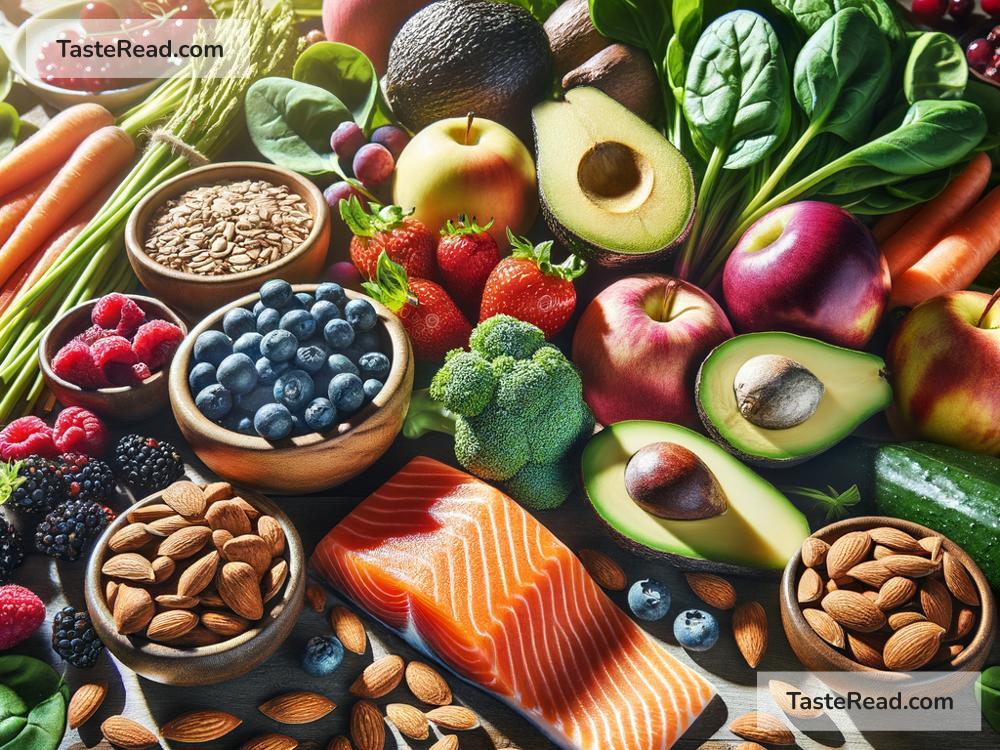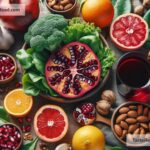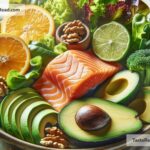Foods That Promote Wound Healing in Skin
Your skin is an amazing part of your body that works hard to protect you every day. When you cut yourself, burn your skin, or experience any type of wound, your body jumps into action to repair the damage. While proper wound care is important, the foods you eat can also play a vital role in speeding up the healing process. Your diet provides the nutrients your skin needs to rebuild itself, fight infections, and stay strong during recovery. In this article, we’ll explore simple foods that promote wound healing so you can give your body the fuel it needs to heal faster!
Why Food Matters for Healing Wounds
Wound healing is a complex process that includes several stages: stopping bleeding, fighting infection, rebuilding damaged skin, and closing up the wound with new tissue. To complete each of these steps, your body needs certain vitamins, minerals, and proteins. If you’re not eating the right foods, your recovery might take longer. By choosing nutritious options, you can help your body work more efficiently and heal faster.
Foods That Help Heal Wounds
1. Protein-Rich Foods
Protein is crucial for building new tissue and repairing damaged skin. It acts as the building block for your body during the healing process. Without enough protein, your wound may take longer to close.
Foods to eat:
– Chicken: High in lean protein that’s easy to digest.
– Eggs: Pack a powerful punch of protein along with other nutrients.
– Fish: Especially salmon and tuna, which also contain omega-3 fatty acids to reduce inflammation.
– Beans: A plant-based source of protein that’s rich in nutrients.
2. Vitamin C-Rich Foods
Vitamin C plays a big role in wound healing because it helps your body produce collagen, a protein that acts like glue to hold your skin together. It also boosts your immune system and protects you from infections.
Foods to eat:
– Citrus fruits: Oranges, lemons, and limes are packed with vitamin C.
– Strawberries: A delicious way to get extra nutrients.
– Bell peppers: Red and yellow varieties have especially high levels of vitamin C.
– Broccoli: A healthy green vegetable also high in fiber.
3. Zinc-Rich Foods
Zinc is a mineral that encourages cell growth and supports the immune system, making it essential for wound healing. It also helps reduce inflammation in the affected area.
Foods to eat:
– Nuts and seeds: Pumpkin seeds, cashews, and almonds are great choices.
– Seafood: Oysters contain more zinc than any other food, but other seafood options like shrimp and crab are also good.
– Whole grains: Brown rice, quinoa, and oats contain beneficial amounts of zinc.
– Meat: Beef and pork are solid sources of this mineral.
4. Iron-Rich Foods
Iron helps your body produce oxygen-carrying red blood cells, which are critical for delivering nutrients to the wound. Without enough iron, the healing process can slow down.
Foods to eat:
– Spinach: A leafy green vegetable packed with iron.
– Red meat: Beef, lamb, and other red meats are rich in easily absorbed iron.
– Beans and lentils: Excellent plant-based sources of iron.
– Fortified cereals: Many breakfast cereals contain added iron.
5. Foods with Vitamin A
Vitamin A helps your skin regenerate and promotes the formation of new cells. It also plays a role in the immune system, which helps prevent infections.
Foods to eat:
– Carrots: One of the best-known sources of vitamin A.
– Sweet potatoes: A delicious way to add more vitamin A to your diet.
– Mangoes: A tropical fruit that’s sweet and nutritious.
– Dark leafy greens: Spinach and kale contain a variety of helpful nutrients, including vitamin A.
6. Hydrating Foods
Healing wounds requires proper hydration, as water helps transport nutrients to the affected site and supports overall skin health.
Foods to eat:
– Cucumber: Contains high levels of water and vitamin C.
– Watermelon: A refreshing fruit that’s excellent for hydration.
– Soups and broths: Easy to digest and hydrating.
– Herbal teas: Chamomile or green tea can provide liquid along with antioxidants.
7. Omega-3 Fatty Acids
Omega-3s help reduce inflammation, which makes it easier for your skin to heal. They also promote healthy cell membranes.
Foods to eat:
– Fatty fish: Salmon, mackerel, and sardines are excellent sources.
– Chia seeds: These tiny seeds are packed with omega-3s and other nutrients.
– Walnuts: A delicious nut that provides healthy fats.
– Flaxseeds: You can add these to smoothies or oatmeal.
Foods to Avoid During Wound Healing
While some foods promote healing, others can slow down the process. Avoid or limit:
– Sugary snacks and drinks: Excess sugar can increase inflammation.
– Processed foods: They typically lack the nutrients your body needs to heal.
– Alcohol: Consuming alcohol can weaken your immune system and dehydrate your body.
Conclusion
Your body has incredible power to heal itself, but it needs the right nutrients to do so. Protein, vitamins, minerals, and omega-3 fatty acids all contribute to faster and more effective wound healing. By eating foods like chicken, eggs, citrus fruits, spinach, and fatty fish, you’ll give your skin the support it needs to repair and regenerate. Pair these foods with proper hydration, rest, and wound care for the best results. Remember, your recovery is also a team effort between your doctor, your diet, and your body’s natural healing process.


